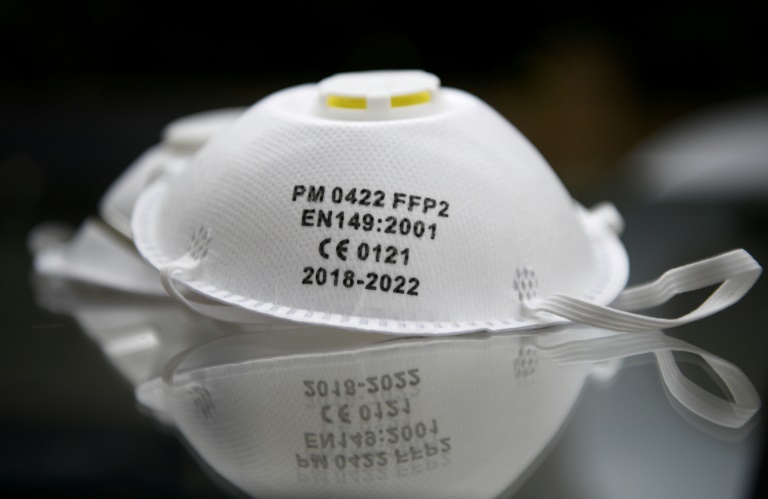France’s prime minister announced Thursday that face masks will become compulsory throughout Paris as he urged the public to help halt a trend of mounting coronavirus infections.
Jean Castex said 19 departments have been added to a map with “red” zones of active virus circulation, meaning 21 of mainland France’s 94 departments are now classified as such.
Official figures released Wednesday showed more than 5,400 confirmed new cases in just 24 hours, with admissions to hospital and intensive care units on the rise.
Read Also: Face Masks Now Compulsory In Paris Tourists Hotspots, Crowded Areas
There was an “undeniable resurgence” of the Covid-19 epidemic throughout France, Castex told a press conference, with 39 positive tests per 100,000 population — four times the level of a month ago, and rising in all age groups.
The “positivity rate” — the percentage of tests that come back positive — was up from one percent in May to 3.7 percent today, and the so-called “R” rate of viral transmission is now 1.4 nationwide, meaning 10 infected people are infecting 14 others on average.
More than 800 coronavirus patients are being admitted to hospital on average each week, up from 500 six weeks ago, the prime minister said.
“The epidemic is gaining ground, and now is the time to intervene” to curb exponential infection growth, he said.
– Dash to avoid lockdown –
Castex announced that Paris, one of the 21 zones with active virus circulation, will make face masks compulsory throughout the city.
The city council later said the measure would come into effect at 8:00 am on Friday.
Masks are already obligatory on public transport nationwide and in most enclosed public spaces, including the workplace.
Local authorities in some cities and towns, including Paris, have also used executive powers to make face coverings compulsory in busy outdoor areas.
On Tuesday, the Mediterranean port city of Marseille — also in a red zone — made masks compulsory in public places throughout the city, including outdoors, and announced bars and restaurants would close every day at 11:00 pm.
Castex said the government would do everything in its power to avoid issuing new nationwide stay-at-home orders, but the possibility could not be excluded entirely and localised lockdowns may be on the cards.
– ‘Relaxation’ to blame –
He urged French people to do their part by taking infection-prevention measures such as regular hand-washing and mask wearing, and to practice social distancing.
Some “relaxation” in French society appears to have contributed to the post-lockdown infection rise, he said, with some unwilling to wear masks or follow guidelines to avoid parties or stay away from older people at higher risk.
The rate of infection increase was particularly high among people aged 20 to 30.
Castex said the situation was not yet “serious”, with the virus incidence rate still 20 times lower today than it was at the peak of the epidemic, when there were an estimated 1,000 cases per 100,000 of the population.
But if things do take a turn for the worse, he said hospitals were ready with sufficient beds, masks and equipment.
The outbreak has claimed over 30,500 lives in France.
Masks will become obligatory for all children over 11 when they return to school next week after the summer holidays, including on the playground, Education Minister Jean-Michel Blanquer announced Thursday.
AFP
